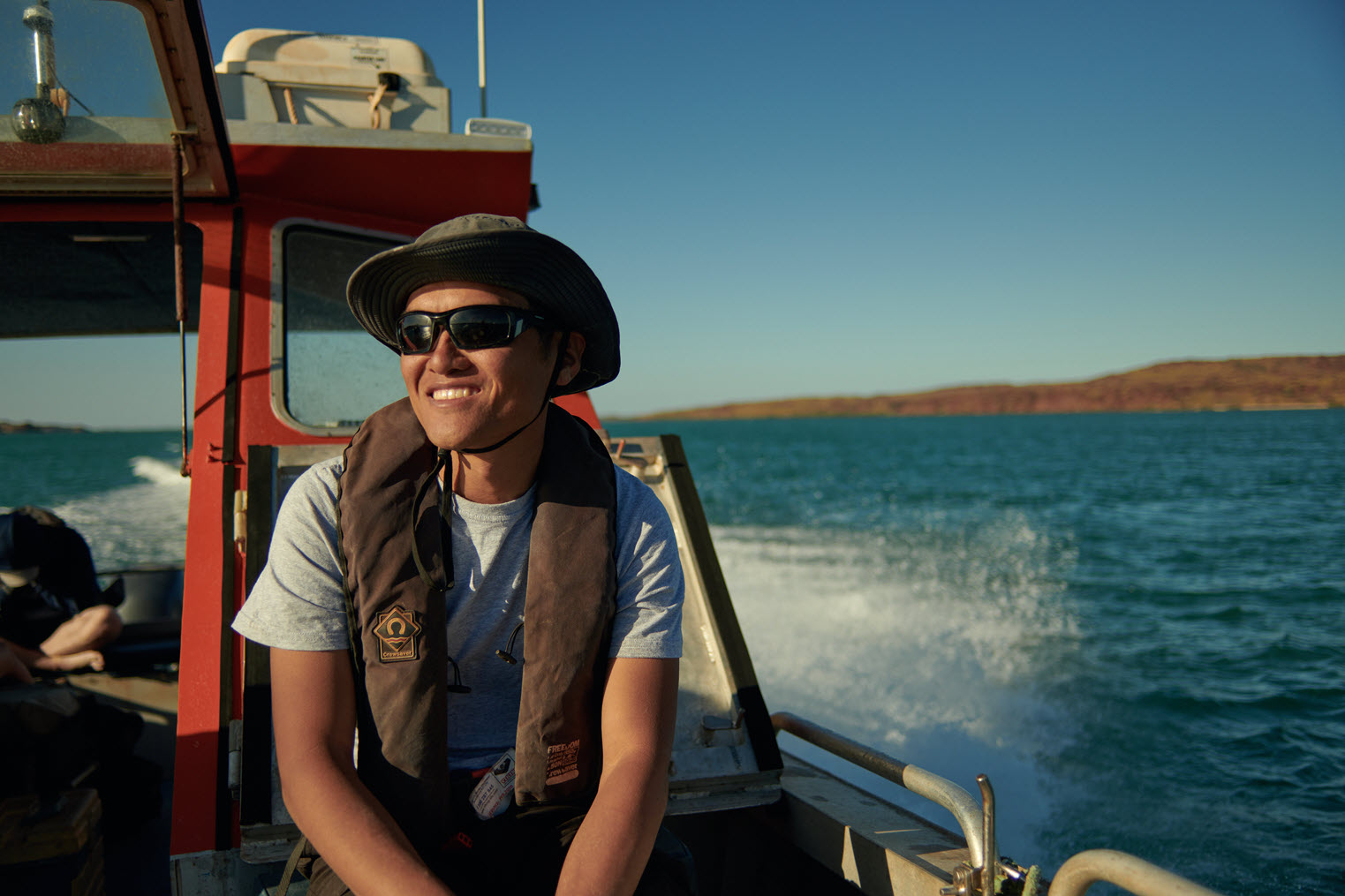
Underwater diver Hiro Yoshida has explored some of the world’s most remote locations. We spoke with him about these SCUBA diving hotspots, and how this unique skill set brought him to Flinders.
What is your role here at the Flinders?
My role is Maritime Archaeology Technical Officer, and as part of the College of Humanities, Arts and Social Sciences professional staff, I support Maritime Archaeology academics and students in their research and education. I have an extensive background in boating and diving, so I help students improve their skills with underwater methods. I’m also responsible for making sure that all the University’s diving assets are maintained and ready to be deployed for underwater research work.
Tell us a bit about the journey that brought you to Flinders University.
I was always drawn to the underwater realm as a child, and that interest led me to learn SCUBA diving. I’ve spent the past 15 years travelling and working in some of the most remote parts of the world doing diving work – my most recent location was Christmas Island. Then, when the opportunity to work with a team of Maritime Archaeologists presented itself, I thought it was a great next challenge that would offer me the chance to learn new skills. Luckily, I got the job, and moved to Adelaide. I especially enjoy the colder water diving and cave diving around Mount Gambier.
What do you love most about your role?
I enjoy helping students improve their boating and diving skills. Over the years, I’ve taught many SCUBA divers and used that experience to advance the Scientific Diver students. It’s really rewarding, and will raise the bar for the graduate students. I have no background in Archaeology, but our team is very supportive and I’m constantly learning new things. Learning more about Archaeology is exciting.
What are you most proud of?
I’m fortunate to be part of the team that created the micro-credential in the Professional Scientific Diver program. Our students can undertake Professional Scientific Diver training as part of their degree, and this helps to improve their skills and knowledge about the occupational diving industry.
We have joined the American Academy of Underwater Science to improve our practice and allow our students to have broader acceptance of their diver qualification. This dual qualification approach will expand our search for new opportunities to participate in scientific diving, in Australia and around the world. What we offer is a unique setup in the higher education sector, and I hope to see this new training become n accepted standard.
How do you spend your spare time?
I like exploring new places, and I enjoy Adelaide’s nature scene, so I’m always looking for nature trails to go out with my family. When I can, I travel to Mount Gambier and go cave diving. I started the sport of cave diving in 2010, and ever since I’ve constantly been searching for new caves to go diving. SA is the cave diving hot spot in Australia, so this activity helps me to keep my skills current. I’m very lucky to work in the diving field, as this is my true passion.

